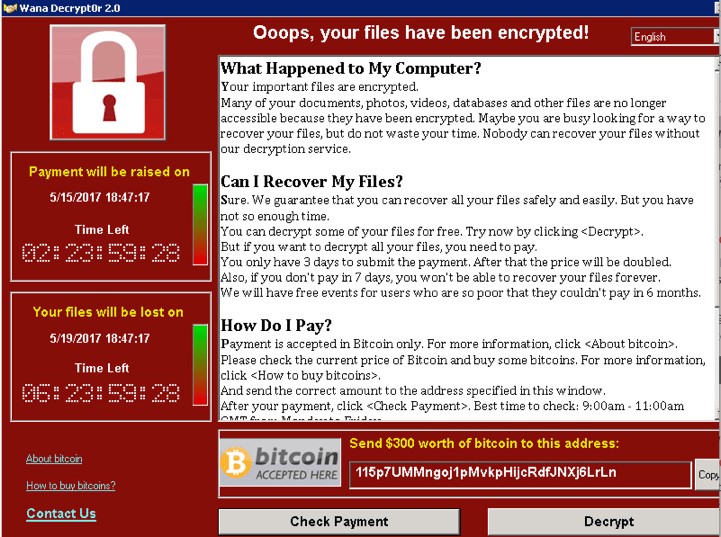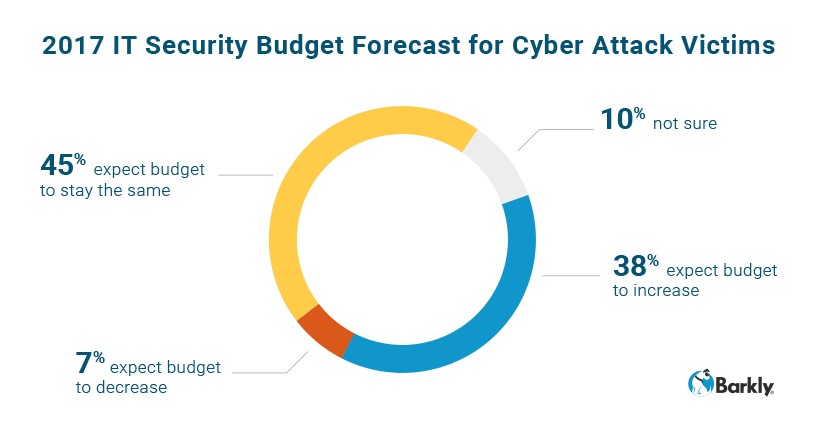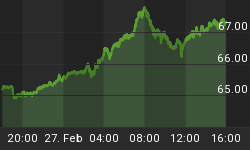Bitcoin’s secure payment system has been put into many legitimate uses, but like most technologies, it’s also a lucrative crypto space for cybercriminals who use it for a new game of extortion and ransomware attacks. And it’s a great business model because the majority of victims pay—and the rates aren’t all that bad.
In May 2017, hundreds of thousands of computer systems across the world fell victim to one of the most egregious ransomware attacks in recent times. The WannaCry cryptoworm, as it was called, exploited a vulnerability in Microsoft's popular Windows OS, using a technique known as cryptoviral extortion to lock up data and demand ransom payment in Bitcoin.
Although the amount demanded to unlock a single device was a rather modest $300, the hackers still managed to collect a pretty penny due to the scale of the attack.

(Click to enlarge)
And now it appears as if the ghosts of WannaCry have refused to stay put.
A Massachusetts school district has been forced to fork over $10,000 in a Bitcoin ransom payment to cyber extortionists to have its systems unlocked following an April 14 attack.
The attack was a straight up decryption that crippled the school's email system with no data mined.
The disheartening part is that the police have said it's next to impossible to track down the hackers thanks to the inscrutability of Bitcoin transactions.
An Explosion in Ransomware Attacks

(Click to enlarge)
Source: Blockonomics
WannaCry and the Massachusetts school district attacks are by no means isolated incidents. Related: What Really Drives The Price Of Gold?
In 2016, Hollywood Presbyterian Medical Center, a hospital in L.A., paid nearly $17,000 in Bitcoin to hackers who held its computer network hostage. According to antivirus software vendor Kapsersky, more than 4,000 ransomware attacks occur every day, by far the most common type of malware.
The sharp rise in this particular type of cybercrime is being driven by the anonymity of Bitcoin transactions. In the case of WannaCry, the hackers asked the victims to send payments to three Bitcoin addresses. Bitcoin transactions are anonymous, only revealing the Bitcoin address of both the sender and the receiver.
The blockchain data itself resides in the public domain and it's possible to track the activities of the sender and receiver. Still, the hackers were able to withdraw $150,000 worth of Bitcoin from their digital wallets about three months after the attack.
Bitcoin is also responsible for powering one of the largest underworld drug marketplaces—the Silk Road. The Silk Road was a large online drug market that operated in the dark web--an overlay of darknet networks that can only be accessed using special software configurations. It has thousands of listings for narcotics, fake drivers' licenses, counterfeit currency and even hacking services with 600,000 Bitcoin changing hands on the site (worth $5.5 billion at current rates).
Companies Stockpiling Bitcoin
Perhaps what has been encouraging hackers to continue with their nefarious activities is the willingness of companies to pay up.
Nearly 70 percent of companies hit by ransomware give in to demands by the hackers and pay up citing importance of the encrypted data and low cost of ransom payments.
According to figures by Trend Micro, the average ransom is $722, a reasonable amount to pay to get back potentially sensitive data.
Related: Nasdaq Volatility Still High Ahead Of Apple Earnings Report
In fact, many companies have been stockpiling Bitcoin in anticipation of future attacks. A Citrix study found that fully one-third of companies maintain a stash of digital currencies as part of their strategy to regain access to important business data and intellectual property.
These companies have a hand in the ongoing wave of cybercrime, with half of businesses that have suffered attacks in the past doing little to mitigate future attacks.

(Click to enlarge)
Source: Barkly
By Alex Kimani for Safehaven.com
More Top Reads From Safehaven.com:
















